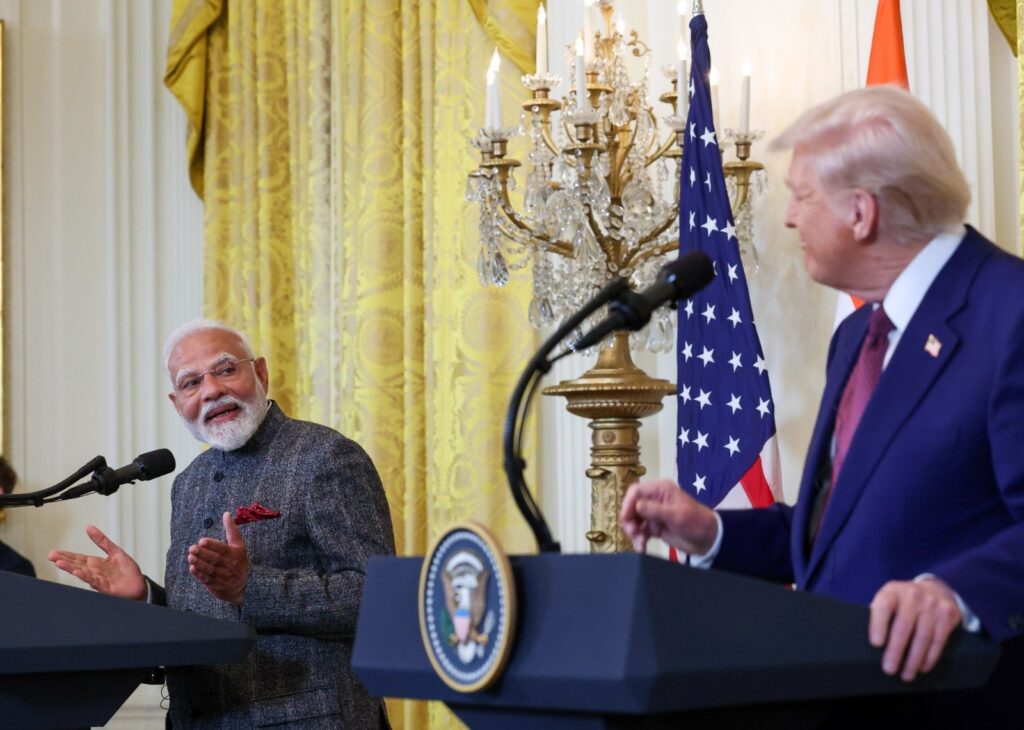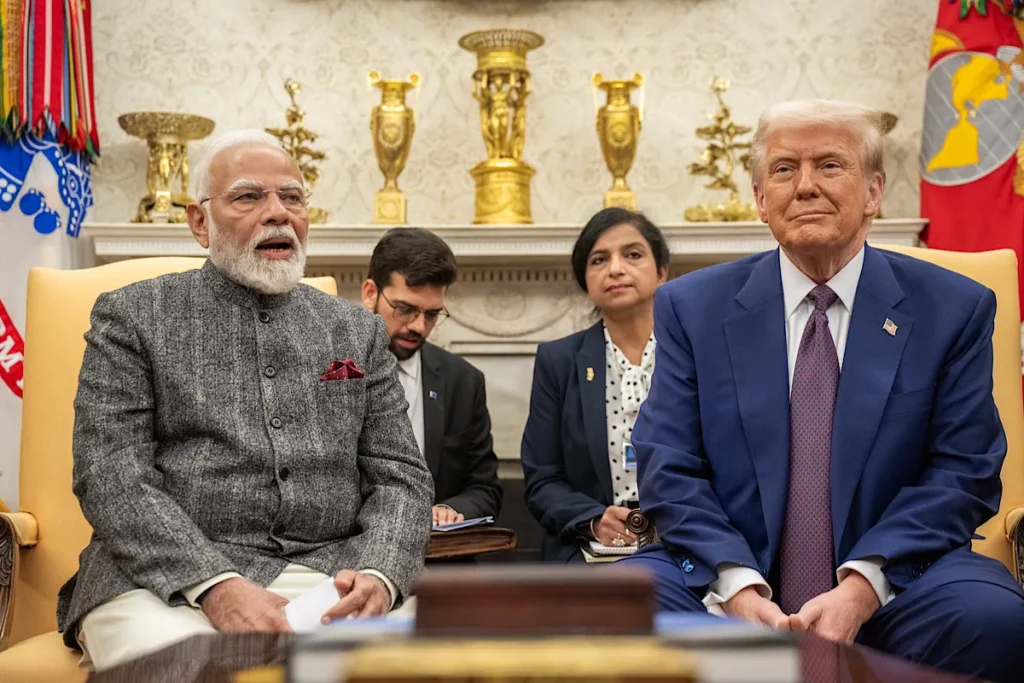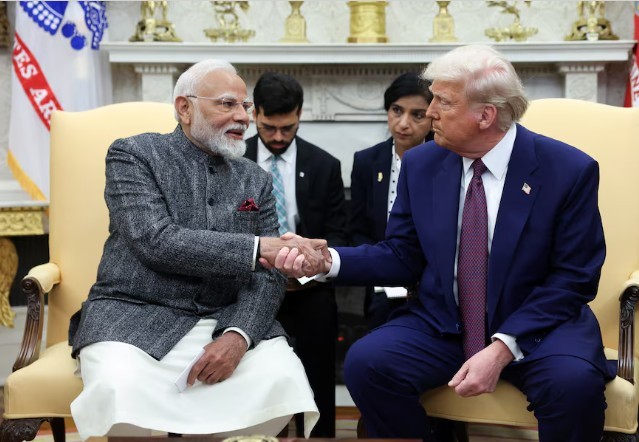By – Prakarsh Kastwar
In a recent press briefing at the White House, U.S. President Donald Trump extended an offer to mediate the ongoing border dispute between India and China. However, India has politely rejected this offer, reaffirming its stance of resolving any issues with its neighbors through direct bilateral discussions.
Trump’s Offer to Mediate
During a joint press conference with Prime Minister Narendra Modi, President Trump expressed concern over the escalating tensions between India and China along their border. He remarked, “I see that there are skirmishes happening along the border, which are quite violent. If I can help in any way, I would be happy to do so, because this needs to be stopped.” The U.S. President’s statement seemed to be an attempt to offer assistance in resolving the conflict, which has been a point of tension between the two Asian giants for decades.

Trump’s Views on US-China Relations
In addition to commenting on the India-China border situation, Trump also touched upon the broader context of U.S.-China relations. He noted, “I think we’ll have a great relationship with China. I had a very good relationship with President Xi Jinping, until COVID came along… China is a very important country in the world.” His comments reflect the complex and evolving nature of U.S.-China relations, which have been marked by both cooperation and confrontation in recent years.
India’s Firm Response
In response to President Trump’s offer, India made it clear that it would prefer to handle its territorial disputes through direct dialogue with China, without third-party mediation. India’s Ministry of External Affairs (MEA) issued a strong yet diplomatic response, with Foreign Secretary Vikram Misri affirming India’s long-standing position on the matter. Misri stated, “We have always resolved our issues with our neighbors bilaterally. We have never sought third-party intervention in our matters and will continue to resolve any disputes through direct talks with the concerned parties.”
This response highlights India’s consistent approach towards managing its foreign relations, especially with neighboring countries. The Indian government has always maintained that it is capable of handling its territorial issues through negotiations and without external involvement.

Background of the India-China Border Dispute
The India-China border dispute has been a long-standing issue, rooted in differing perceptions of the border’s alignment. The most significant flashpoint in recent years occurred in June 2020, when violent clashes broke out between Indian and Chinese troops in the Galwan Valley in eastern Ladakh. The incident led to the deaths of 20 Indian soldiers and an unknown number of Chinese casualties, significantly raising tensions between the two nations.
Despite several rounds of military and diplomatic talks, the dispute remains unresolved, with both sides continuing to maintain military presence in sensitive areas along the border. India has consistently advocated for a peaceful resolution through diplomatic means, but it has also shown resolve in defending its sovereignty.
India’s Policy on Border Disputes
India’s rejection of third-party mediation aligns with its broader foreign policy approach of resolving border disputes through direct negotiation. New Delhi has always emphasized the importance of bilateral talks to address issues with its neighbors, including Pakistan and China. India has consistently argued that any intervention by external powers would complicate the resolution process and could potentially escalate tensions.
Conclusion
As tensions persist along the India-China border, the diplomatic standoff continues to be a delicate issue. While the offer of U.S. mediation was met with a polite refusal from India, it serves as a reminder of the challenges involved in resolving such longstanding disputes. India’s preference for bilateral dialogue underscores its commitment to self-reliance in dealing with foreign relations, particularly with its immediate neighbors.
As the situation evolves, the focus remains on ensuring peace and stability in the region through dialogue and cooperation, without the interference of third parties. Both India and China have agreed to continue engaging in talks, with the hope of reaching a peaceful resolution to the border tensions.

